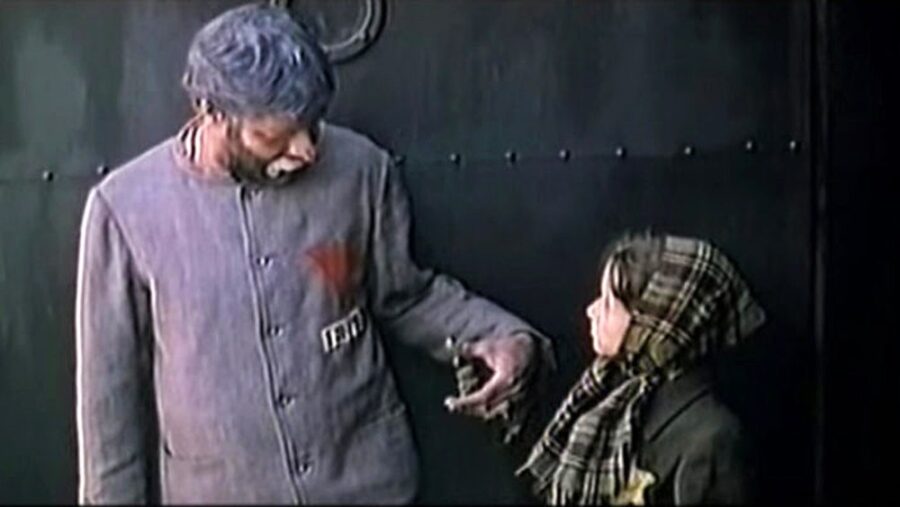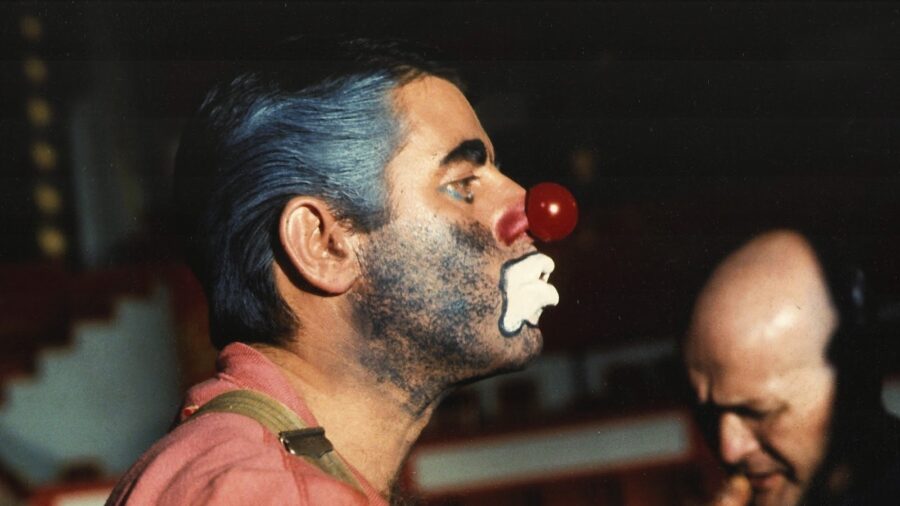Controversial Movie Screening For First Time After Over Half A Century

Jerry Lewis’ The Day the Clown Cried will finally see the light of day this coming June. We’re not talking about a re-release, however, as the film was never completed or screened publicly. Jerry Lewis refused to release the film during his lifetime, but donated an incomplete copy to the Library of Congress before his passing in 2017 under the condition that it wouldn’t be screened any earlier than June 2024.
At the time of this writing, we don’t know where the screening of 1972’s The Day the Clown Cried will take place, or who will be able to attend. Aside from showing the movie to a few friends and colleagues in a private setting, nobody else has seen it. Among the few people who have seen it is Simpson’s voice-actor, Harry Shearer, who has gone on record stating that the film is awe-inspiring, and a “perfect object” despite its problematic premise.
Though the film ultimately ended up being a passion project for Lewis, he was never fully satisfied with his work, and refused to release it.
Centering on a disgraced German circus clown imprisoned in a Nazi concentration camp, The Day the Clown Cried blends elements of dark comedy and drama. Jerry Lewis, who was most well known for his physical comedy, felt like he was out of his element when originally asked by producer Nat Wachsberger to star in and direct the film. But after reading the script, he signed onto the project and decided to give it a go.

In The Day the Clown Cried, Lewis’ Helmut Doork is jailed for drunkenly impersonating Adolf Hitler. During his stay at the Nazi camp, he realizes that the Jewish prisoners in the adjacent camp appreciate his efforts to be funny. But he ends up getting placed in solitary confinement because fraternizing with Jewish prisoners is forbidden.
Centering on a disgraced German circus clown imprisoned in a Nazi concentration camp, The Day the Clown Cried blends elements of dark comedy and drama
When an SS commandant sees a use for Doork’s harlequin act, he releases him from solitary confinement, and tasks him with loading children onto a boxcar train to Auschwitz. The Day the Clown Cried takes a very dark turn when Doork boards the train, and is shipped to Auschwitz along with the children. Upon his arrival, he is used to lure children to their deaths in the gas chamber.
The Day the Clown Cried was never completed due to a dispute over finances between Jerry Lewis and producer Nat Wachsberger. Upon shelving the movie, Lewis had to pay the cast and crew out of his own pocket, and had to sell off assets to be able to write the checks. Though the film ultimately ended up being a passion project for Lewis, he was never fully satisfied with his work, and refused to release it.
The controversial subject matter in The Day the Clown Cried was also a primary point of contention among the filmmaking community at the time of its production. But comedians like David Cross suggested that the fate of the movie was the result of Jerry Lewis being way too ahead of his time for trying to blend comedy with the real-life horrors of Nazi concentration camps. He went on to say that if the film was released 25 years later, it would have probably received numerous accolades.
Aside from showing the movie to a few friends and colleagues in a private setting, nobody else has seen it.
And Cross wasn’t wrong, as 1999’s Life is Beautiful tried to tell a similar kind of story and won three Oscars. Critics who were in the know about The Day the Clown Cried were quick to point out that Jerry Lewis was the first person to make the attempt to try executing this method of storytelling.
Luckily, we will soon be able to bear witness to the ill-fated Jerry Lewis film that has been talked about for decades, but never released. Whether The Day the Clown Cried will get a wide release in theaters or on streaming after its initial screening remains to be seen at the time of this writing. Hopefully our reception of the film exceeds Jerry Lewis’ expectations.
Source: The National News












